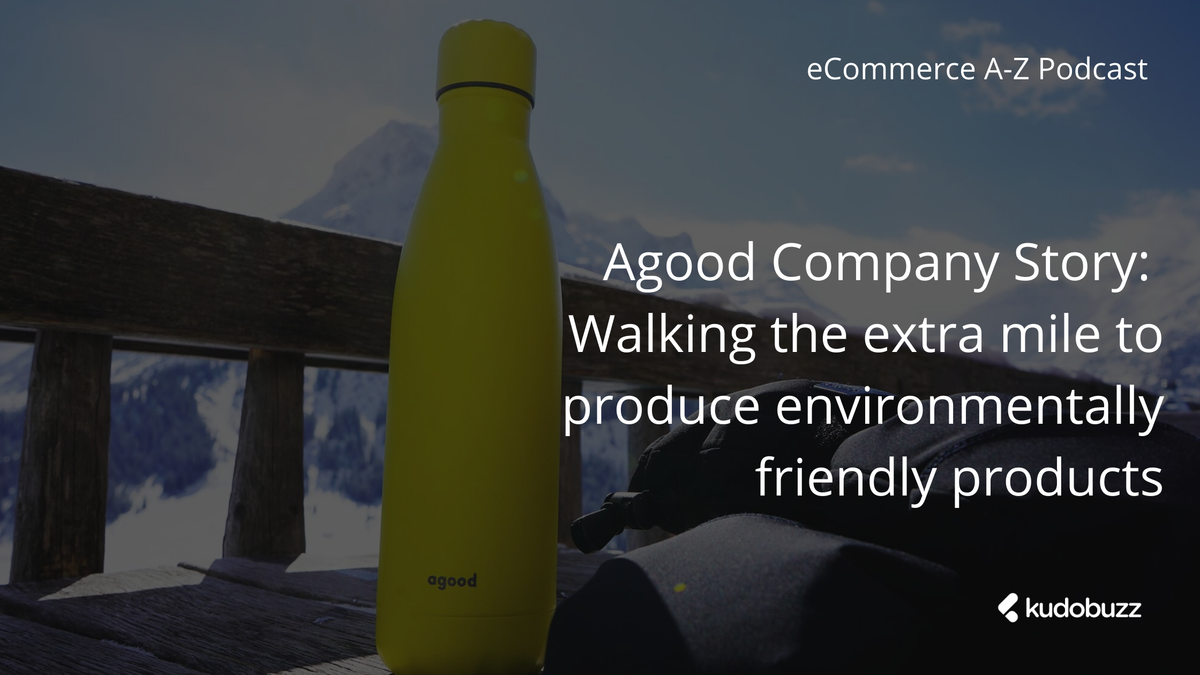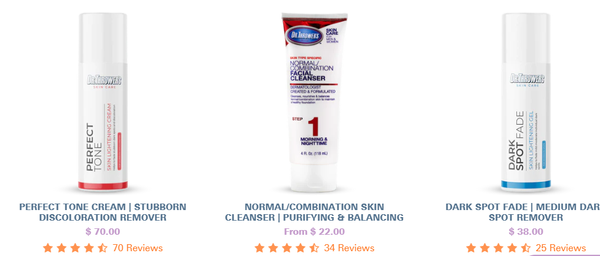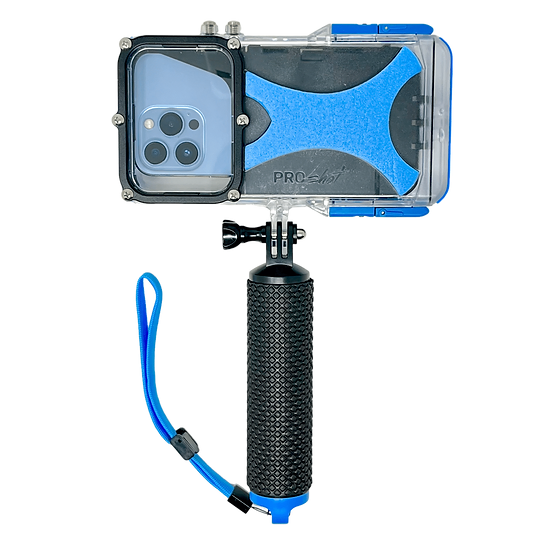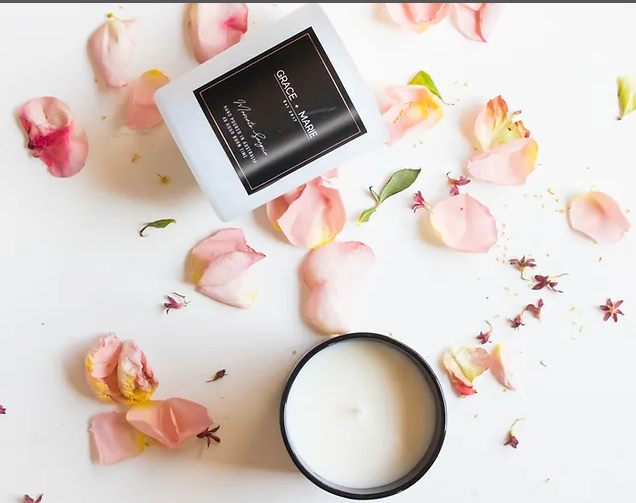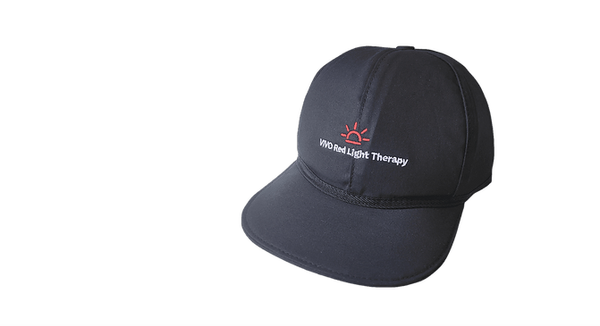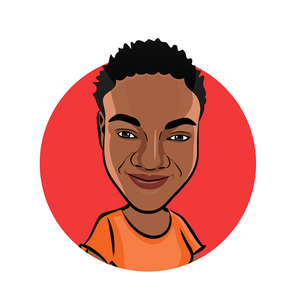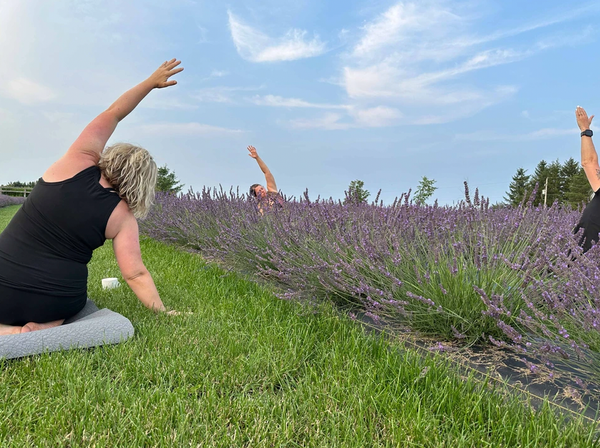We speak to Anders Ankarlid, CEO of A Good Company focused on creating everyday products with materials that have the least environmental impact.
TRANSCRIPTION:
Introduction
You have to give people space for them to be able to grow as well, I think that’s quite a standard phrase just that. But if you do that I also think you get people to grow a lot.
Dzifa Mensah- Hi there, Welcome to the eCommerce A-Z podcast, where we teach you how to start and grow a thriving eCommerce business.
Our guest for today’s episode is Anders Ankalid, the CEO of A Good Company. A Good company is a 100% remote startup focused on creating an elegant, thoughtful and sustainable everyday product with production materials that have the least environmental impact. Anders and his team always walk the extra mile to improve their products and processes and ensure that they are always responsible as they can humanly be. Now they believe that they can transform mindless consumption into conscious decisions. They sweat about every single detail about their product.
My name is Dzifa Mensah, and I am your host for the eCommerce A-Z podcast. Let’s delve right into the conversation.
Dzifa Mensah- Hi, how are you doing?
Anders Ankalid- I am well, thanks. It’s a bit upside down with everything due to the outbreak, all in all its good
Dzifa Mensah- Yeah, we are hopeful that things will get better across the globe.
Anders Ankalid- I totally agree, thanks so much for having me.
Dzifa Mensah- Alright, take us back to how you started A Good Company. Tell us about the idea.
Anders Ankalid- The background behind A good company - Summer of 2018 was very hot here in Sweden where I am living. During summer time, me and my wife and our 3 kids live at the country house where basically my wife grew up. It’s a small farm with 10 cows, a little lake, a well and really a close nature life if you like. Summer 2018 started in June. At that time, I was a management consultant. I travelled a lot, all around working with C-Suite Executives about transformation programs and so on and so forth. But since there was no rain, the temperature was 56 degrees higher than typical. What happened was that the well dried out. It hadn’t done that for 150 years and the grass was burnt so our 10 cows couldn’t eat anything. Typically, they were just walking and eating from the grass outside the farm. So, we had to spend a vast majority of time just keeping them alive since we cared for them as family members. That sparked something. So maybe I was the latest person on earth figuring out that climate change was actually happening in reality. I never thought of it before which is kind of sad in retrospect, but that is how it was. So, I decided to quit my job and I aligned with two partners which were previous customers to me. Basically, I sold my shares at the management consultant firm and invested it into A Good company. The vision behind A Good company is to design, manufacture and sell sustainable everyday products where you don’t compromise between design and sustainability. We spent a lot of time during the end of 2018 figuring out how we can shape things in at least a climate neutral manner since we saw a lot of sustainable options out there but scratching the surface off them. If you are still shipping them two big cardboard boxes or if you’re shipping them in a lot of plastic, the potential surplus of an environmental friendly product, where as to say a conventional one didn’t add up. So we spend a lot of time starting with thinking about how to get a fair, and for the environment-okay-solution for the logistics. So that’s the background behind A Good company and now we are benefitting a lot when we are launching new product categories and new products to our assortments, that we started thinking about the aspect of shipping items. So that’s the product, and that’s the story behind A Good Company. Now we are selling to 55 countries a month. We have a very solid growth rate, a healthy growth rate I would say, month by month basis and a lot of appreciation from our customers since we try to care for all the details behind a product. From how it's made to how it comes to use and consumer at the very end of the journey.
Dzifa Mensah- How do you know to choose which product to venture in at every point in time?
Anders Ankalid- We are at every second available, we may be working on 20 to 25 different projects of products. So we have 6 base categories which we see are good for our niche. We try to avoid electronics. We try to avoid big products such as bicycles and so on since it is complicated to ship that in the solution we have picked. In our categories we are focusing on personal care. We are focusing on mobile where we have our mobile cases made in Sweden, but a waste of the linseed. We are having non disposable categories. I hope we can grow a lot. We are working on the stationary categories since we see a trend where people are moving away from digital tools, into using old fashioned stationery and products around that as well. That’s our base categories. When you are developing something sustainable where you are looking into raw materials, when you are looking at how to patch them, how to distribute them or disrupt the traditional product or traditional product category, it’s a benefit to use the knowledge over a broad scope of product at the same time. Since most of the time what happens is that we have to go back to the drawing table over again. So if we are doing it one by one, it will take us a tremendous time to launch something. And I can say that we are also working on a sustainable circular clothing line which when we started working on, we thought we could launch within 6 to 9 months. We are now entering into month 14 with that project. We are getting progress but we have a long way to walk before we can deploy it. Since it is so complicated with all of the aspects of developing a clothing line, if you are doing it in a proper manner. So that’s the long answer to your quite short question.
Dzifa Mensah- You were just talking about the upcoming clothing line, which is taking more months to execute than expected. On the regular, talk to me about the entire process of say the mobile cases line right from the time of conception till we have the product.
Anders Ankalid- So the mobile case is out since the 3rd week of December. We have worked on that project since August 2018. I think it is approximately 15 months, or maybe 14 months of total project time. When we started this, as we do with most product development, you start with yourself, your relatives and your nearby friends and so on. What I can see from where I live and where I have friends is that most of them are using some sort of protective phone case. Then we realize that all phone cases out on the market today, if they were environmental friendly, they were kind of ugly or if they were not environmental friendly, they were made out of plastic. Often, it was also made out of a mix between two different plastics, PE and PP so one was soft and one was hard. That’s devastating to the environment both, since plastic is fossil fuel based but also that makes it impossible to recycle since you have two fractions mixed into a small piece. So we started to look for an alternative where we wanted to use a plant based option instead. Sweden has a lot of hectares of soil where you can grow things. And we were always looking into finding an option close by because we were also involved in the actual process of making it but also due to that, when you are working with a new type of progressing materials, so many things go south in the beginning. It's not stable. It's complicated and so it was easier for us since we are avoiding travelling by air to avoid going to different vendors to work near by. So we found a farmer 45 minutes from where I live who grows linseed and he sells the linseed crop to the food industry but then he has like 96% of the plant just waste for him. Linseed or the flax plant is actually very very strong. It's been used to make clothing line or clothes for a long time and it contains a lot of starch. Starch is a very good binding material. So we thought of experimenting with that and after a few months we were able to heat it, cool it and make pallets out of it. If you can make pallets out of something, you typically can inject and mold. Which is how you make a mobile phone case. So the other way around, we started making molds. We identified which mobile phone case in the gap, which I spoke to you in the beginning as all about making it look as a fashion design case but with all of the benefits of a sustainable case. So we had to figure out a way to add prints on it with a water base technique. So there was a lot of meltdown during the journey. From the material which didn't stick, to the color which didn’t stick, we had issues with melting point and so on and so forth. But since the 3rd week of December we are selling them really well and we are now growing out with assortment with new types of both designs but also new types of phone models which is the logical step to venture. So we are moving into the space of android phones, new types of iPhone models but also new kinds of phones as well to support a broader community with the same product.
Dzifa Mensah- That’s a lot of work going in for a phone case.
Anders Ankalid- Yeah that is true, I can admit. It’s a lot of time and energy. I think when you are developing something at the end when you release the product, everything looks so simple. But developing something from scratch is not about the options you make, It’s about the options you look into but then decide to jump. So we have evaluated before we picked flax as the base raw material, we may be looked into 15 other materials and looked into their composition. How can we source it? Is it good when you source it? Or is it actually something that we are stealing from someone who can eat it? Which could be the case with cornstarch as an example of a popular progressing material as well. Even though they have specific corn only produced to make non food based corn starch products. Is there the case that you can also pick at that specific soil to actually produce corn that a person can eat? So we try to think and find a material where we only use the waste. So we are not producing any material for the purpose of making a phone case. We are only taking care of a waste material from something that was supposed to be made from something else.
Message from Our Sponsor
The eCommerce A-Z podcast is brought to you by Kudobuzz Review. Over 70% of online shoppers refer to reviews before making a purchase, according to them reviews serve as social proof and aids them in making purchase decisions. Collect reviews and display them on your website to convert your visitors to buyers. Join over 25,000 online merchants in the Kudobuzz family and start boosting your sales now. Kudobuzz review app is available on Shopify, Bigcommerce, Wix, Weebly and Wordpress. Check out kudobuzz.com for more.
Dzifa Mensah- You are big on remote and your entire team is run fully remotely, tell us how you resolved that and how you go about your hiring process.
Anders Ankalid- Yeah so I think the general idea for, if it is not from a personal stand of point, I was quite tired of wearing a suit and showing up at meetings all the time. It didn’t fit our family situation quite good either since I have 3 small kids and I try to be present with them. So it makes sense to have a flexible job. We have people where we need to have them and we don’t see boundaries as something that should limit us. Since we don’t have an office, No one is included and no one is excluded. So we are all producing a lot of our goods at family owned factories in Asia. Therefore, it makes sense to have people locally there to go and meet them on a really close basis. So we have three people working in Hong Kong. Since we sell to basically all time zones, we have to have customer service people locally present in different times so that we don’t have people working in night shifts and so on and so forth. We have a customer service team in Jamaica and in Argentina. We are helping out here obviously from Europe as well and in the Philippines. We just made a spider web of how we can serve people around the clock so someone can always tag in when someone else is leaving.
Then we work with local translators and content writers. These we have in Barcelona, Italy, France and Germany. It makes sense for us to work with local people even though a lot of people in Sweden can also handle Germany. It’s cultural differences If you are living in Berlin or if you are outside due to the words you pick and so on and so forth. And when it comes to marketing and product development, we are actually doing it from Sweden. We have two industrial designers except for me who are working at the same place. So we meet physically once a week or something to look at materials and so on so that makes sense for that group to stay online. But for the other, our communication team and distributors as well, we try not to limit ourselves. We try to find where we can find the best resource and where we can be fair to that person. That person can work daytime and still do a proper job. And it is quite nice actually in the morning to wake up, check the Slack and see that a lot of activities have actually happened during the night so we get on different types of projects depending on what type, of course. But then if we do a product development, there is someone who can always tag in and do things and then the other team wakes up and checks in to continue and progress in that. I think that we save a lot of time and I think that there is a good side in a world where a lot of people are afraid for one another that we have, 11 different nationalities. I think that is beneficial for us.
Dzifa Mensah- Looking at the fact that now thanks to the covid-19, a lot of teams have been forced to work remotely and you have been during this for a while now and you have done it well. Maybe this is a good time to chip in on some tips for companies that are now new to this remote thing.
Anders Ankalid- It is easier to understand that since we have that we are not selling that much in percent to South America since it is a growing market for us. It is an advantage to have someone in this case living in Buenos Aires. Since more can understand what happens locally and we can maybe further adapt to changing transporter to South America rather than getting it from like a global notice. We can maybe fast footed if you like. We have also suffered a lot from the corona outbreak especially with the people we have in these areas who are really suffering. But at least we didn't have to do and learn how to work remotely. That was already in place and now we have people who can focus on anything else, just than taking care of their families. Since you are living in Milan, in Italy, which you have to focus on is to handle the outbreak. But if we would have all our people living in Milan or all our people where I am living in the south of Sweden. South of Sweden is going into a massive quarantine which I don’t know if it will happen or not, that hits the business harder than if you are on a remote team. Maybe I can see now in Hong Kong. They are back at full speed. They have been really suffering in January and February when school closed, all around has just been a complete mess. But now they are ramping up and we can obviously benefit from that and maybe leaning on some more task to that team. Whereas Europe is into the face of the hotspot of the quarantine period.
Dzifa Mensah- Are there any parts of your business that you outsource?
Anders Ankalid- We work with consultants on a basis of expertise. So with our clothing project is one of our examples which is just too complicated to do with our designers, she has no experience in fashion and clothing, she is also a friend of mine. We work with a local designer that helps us with material composition and with testing and dying and so on and so forth. Our warehouse is an outsource solution where we are involved in all kinds of processes. We care for how they work. We care for the electricity they use. We care about how they pack our products to our customers. We have to some extent our own equipment there, not only like packaging materials. But we have placed our own engraving machine there at the warehouse directly and we are looking into more and more of that even though we are not directly employing our stuff. We outsource. We don’t see that we are the best company to run the warehouse. I have been doing that before with my other companies in the past, and it is a specific competence to work with that and we don’t see that really. We are more of a design brand and marketing team rather than a logistic team. So that’s the thing we outsource.
Dzifa Mensah- And that’s been going well so far?
Anders Ankalid- So for us there are always complications. Of course, nothing is a smooth ride, running an eCommerce store. The one that says that is either not seeing the full picture or is telling a lie. There are always things to tweak and of course it could be annoying not just to call off and to have a conversation directly with a packer which we can always do with our own people. We try to find our ways and so far we have been satisfied. And the good thing is since we have been growing quite much, it is easier for us to do that with an outsource solution. We don’t have to think about capacity limits or we don’t have to think about when we are having an article in the Guardian about us and suddenly we sell thousands of tooth brushes in an hour. We don’t have to care about the capacity issues with that. In all it goes well. But in everything you do, even if it is outsourced or not outsourced, it can still be complicated. And the good thing is that we have great contact persons. We try to be very human with them and we try to understand their situation. They are also now suffering obviously since every part of the world is suffering with their operations due to the outbreak. And we try to listen in on that. And I don’t think there is a position now where you set demands to be very strict with SLA(service-level agreement) and so on and so forth. You can’t do that and push them in a sensitive period which is obvious. Then you are just going to end up having an enemy in the long run and we try to be nice to people rather than just push them to their limits.
Dzifa Mensah- What would you say an eCommerce business should look out for when they are outsourcing their logistics and warehousing?
Anders Ankalid- There are so many options, it’s a complicated thing to be honest. There are so many options and everyone is bragging. I think with everyone, what we looked at was first how can we get initial rates to as low as possible. How do you route things at the first line and not the last mile of delivery? How do you get them to the central homes? Where our warehouse is located we can mail things to Leipzig which is a major hub or we can route things to Finland. That we can do by truck. We can do by rail as well where UPS has a big route or hub to ship overseas. That is the thing that I would start with if you care for the environment which I hope that everyone does. Secondly, is to actually meet with the people. We spent a few days at the warehouse just walking around, understanding the processes and so on. And if you are not doing that or trying to understand the many other options you have if you are running in this case a warehouse, you only look at price. And this wasn't the cheapest option but we got a good sense for the people. It seems that they care for their staff and that they care for things that are important for us. How do you get electricity? How do you take care of the recycling aspect of the operations? And I think that if outsourcing companies care for these details to some extent, that also mean that they care for other things as well. So that’s the thing we look into. At the end of the day, what matters most is not if you are saving 0.1 euro per shipment. If you get a good contact, you get a great understanding for one another’s business and that goes both ways then when obstacles happen, it is easier to find a solution and not become enemies fixing these. So that’s the aspect we are looking into. I am sure that many other companies, they are only looking into SLA rates, pick and lock time, low carrier cost. But all that comes also when you can present a good volume. But I think the warehouse religion pretty much driven by the FDAs, Amazon and so on, is all about productivity and I think honestly there are more things other than just productivity to care for if you are setting up a long-term partnership with one another.
Dzifa Mensah- Now let's talk about A Good Foundation, how did you come about with that idea, and how do you go about running the foundation from the proceeds?
Anders Ankalid- So A Good Foundation is a fairly new thing. It sparked from when we saw that we can do a lot of good things in the world. Then we obviously started with the research aspect - what are others doing. There were initiatives where the offsetting a part of the profit, there were offsetting a part of their buying so, they could buy a tree so that they could extend their product, give one, buy one and so on and so forth. What we saw with that is that that, one, was hard to control. I mean profit to all extent is pretty much controlled by the management of the company. If the management of the company doesn’t like to serve the purpose of showing the profit, then they can avoid it by tricking the balance sheet or something like that. So first we decided to do the other way around, we should work with one thing in our reporting, we can not trick and that is the turn overs. So we all set part of our turn over, 4% to be precise and that may be sounding like a very small amount but if you compare 4% of turnovers with 1% or 50% percent of the profit, it’s a completely different ballgame. 50% of the profit, so if the profit is zero then what you are giving is also zero. Secondly we looked at what can be due in the long perspective and what’s really helping is not giving away another product. If you live in a less fortunate country than Sweden, then getting a product will only create dependencies. So what we are focusing on with The Good Foundation is to support more local initiatives and really benefit from our people we have all around the world but most importantly doing long term things. So we set off to invest and fund education. We do this into the topics where we see we can bring something unto the table such as climate change, recycling, things we can actually have an opinion on and maybe come up with good advisers rather than just sending money to the Red Cross. Even though I see that the Red Cross is doing great things but they are not well connected to what we do and it makes more sense for us to do that. And the last part about setting it up ourselves was to avoid having a lot of admin fees. I saw a video about Charity Waters who has a really bold promise where all donations go 100% to where it is needed and in their case it's about cleaning up, giving fresh water. And we do the same bold promise so 100% of these 4% goes to support the activities we engage in. Then we have to use our other resources to pay for admin and so on and so forth. But I think it is an important aspect for the customer to see that okay I am buying something for lets say 10 euros, out of that 40 euro cent will actually go to 100% supporting this initiative and it is easy to communicate and it feels good so that’s why we decided to set it up to ourselves.
Dzifa Mensah- How long has it been running?
Anders Ankalid- We launched it in the beginning of 2020. We worked on it from maybe quarter 3 and quarter 4 2019. But it takes a lot of time thinking about finding the angles, setting up the structure, finding local initiatives, and so on and so forth. And we launched it in the beginning of 2020.
Dzifa Mensah- Are there any personal business strategies you have developed over time running A Good company?
Anders Ankalid- I think one strategy that we try to apply or at least I try to apply is to get people to feel accountable. So we work with a very simple but also very precise steering process where everyone has two KPI’s which they are accountable for which they can also influence that we check on every month. So in the same it goes bottom up in the complete organization. So everyone hopefully knows what they are accounted for and act on that and take care of these KPI’s. What I have tried to focus on when we are growing a little bit which we are doing now, is to get the organizations to work more with one another rather than working through me or working for someone. So I have stepped out of a lot of conversations between product development and communication or product development brand expression which for us is like how do we take photos of the product, how do we describe it, how do we write copies. Instead of being involved in all these processes, I have stepped away and really let these people who are responsible for it run their function without me being involved. Obviously, they can contact me if they want information, but I think that’s where we are as a brand and that’s tricky everyday. It looks like you want to get your fingers in every jar but then you are also becoming a massive bottleneck for yourself. That's what I am trying from a personal level to really also try to be responsible for the things that I am responsible for. And I am not responsible for our brand expression, we have Michaela who is responsible for that let’s let her do that. I have other responsibilities too to work on and enable. That’s what I should spend my time on. You have to give people space for them to be able to grow as well, I think that’s quite a standard phrase just that. But if you do that, I also think you get people to grow a lot. It has been a rough ride doing earlier on from a brand perspective into some extent but very very necessary.
Dzifa Mensah- So what is your overall customer acquisition plan?
Anders Ankalid- Yeah we bring a lot of customers in. Obviously we are our own launch house. Facebook and Google are our main customer acquisition channels. We try to focus a lot on how we can get people to become (I hate this word but in a lack of a better word) ambassadors for our brand. I think everything about that is to tell our brand story. What do we do? Why do we do what we do? The background behind our brand and so on. And that we can see in terms of referral and direct traffic and so on. That is working well. What we are also working on is to write a lot and make good content which we as individuals care for. So that’s the reason and the rationale behind. We empty the grocery store of everything that contains plastic. We are not doing it to sell something that doesn’t contain plastic since we don’t have a grocery store product. But we make it to raise awareness that we can be spokespersons behind that and maybe someone would see that and say hey this was a great campaign, let's check out this brand. And I don’t see anywhere nearby where Facebook and Google will become less competitive. For us to earn content and be more self-dependent, it is essential to stay in business.
Dzifa Mensah- Have you read any books since you started this business. If you have, which books are your favorite and which you will recommend to other entrepreneurs?
Anders Ankalid- Yeah, I try to read a little everyday and not end with checking my emails. I think if I should give a simple address on that, a good book I read maybe four or five years ago is The Four disciplines of execution(by Franklin Covey). It's about narrowing down your KPI’s and letting people be accountable and so on. I think that is a really good book to read. I would also state that especially Medium is also a very good source to read and dive really deep into a topic. I read the New York Times and Medium more than I read books.
Dzifa Mensah- What’s your final advice for upcoming entrepreneurs and then existing entrepreneurs?
Anders Ankalid- I think the big trend which we see which we are also to some extent benefiting from is that climate change is on everyone’s lips. It's been little since the current outbreak. Now everyone is talking about the corona obviously. But I think that’s a thing that will erode and that people will come back into speaking about climate change. I think that if I should start a business, I will think about that. You have to start with how we can do something that is good for the climate. I see that now a lot of our like customers, the first year or the first 6 months were still earlier adopters which are women into the 25, 35’s making most of the orders. We see a trend now where a lot of other people from different sides of the demographics are making that both younger and also older. and that’s the main advice. You can not just start a brand today. I think if you do that, you do not care for all of the aspects. You are one, doing a bad thing yourself for environment but you are also hurting and taking a massive risk on being either out competed or out of business sooner than you can afford. Since I truly believe and I could be wrong and I would be very sad if I am, that all customers let’s say within 2 years will take decisions on the environmental aspect and not the fashion or the designer aspect or the price aspect of a product.
Dzifa Mensah- Okay, thank you so much for this conversation
Anders Ankalid- Thank you so much for having me and speaking with you
Dzifa Mensah- It was too. Thank you for reminding us about the climate changes, environmental sustainability and building businesses that actually serve society while being purposeful as well.
Anders Ankalid- Perfect, thank you so much.
Conclusion
Thank you for listening to our podcast, we hope you enjoyed it as much as we did. Please subscribe to our podcast. Leave a review and tell your friends about it on social media. As always, take care of yourself and stay safe. My name is Dzifa Mensah, see you next week.

